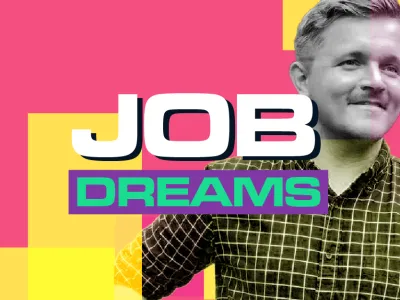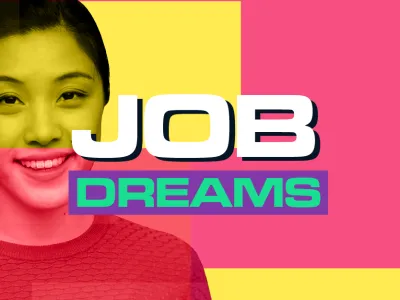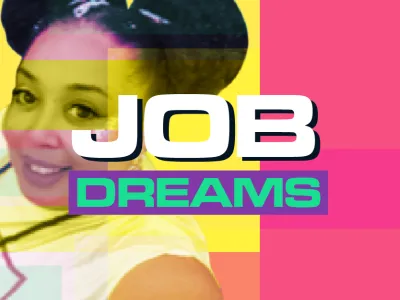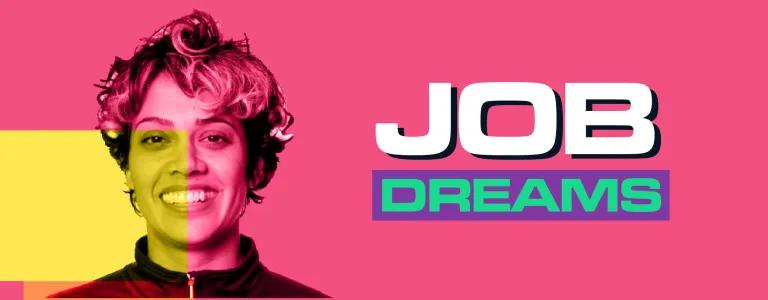
Partnership Director, Stephanie
Include this article in your Skills Builder Journal. It could help you develop...
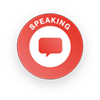
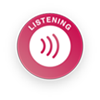
First introduced to the suffragette movement through Mary Poppins, Stephanie Matthews is now continuing the fight for female equality, along with inclusion and diversity in the workplace. We couldn’t think of anyone better to chat to for Women’s History Month.

In a nutshell, what do you do?
I’m the Partnerships Director for Creative Equals, a global not-for-profit championing inclusion and diversity in the creative sector. I’m also the programme lead on Creative Comeback NYC, which provides a bridge back to work for those who’ve left the creative sector due to children, illness, stress or caring responsibilities.
Can you tell us what your day-to-day is like?
No day is the same. I can be out visiting new clients, looking to understand their business challenges on inclusion and diversity. I can be out meeting with my existing partners, checking in to see how our clients are getting on with our programmes. I can be observing a new inclusive culture workshop or attending an industry event designed to profile new diverse talent for our sector.
What do you love most about your job?
I love the variety of my role as I’m not sat at the same desk every day, Monday - Friday. I also love making a difference. I’m in a role that aligns with my personal values and that’s important to me.
You’re part of the bloom network, can you tell us a bit about that?
Bloom UK is a volunteer membership network for women in the media and marketing industry. Their mission is to ensure women have equal opportunity, by harnessing the power of their real, honest voices. Completely comprised of volunteers, they strive to future-proof women’s careers through training and networking, spearhead industry change and pay it forward for the next generation.
Why is it important that networks like this exist?
It’s crucial networks like this thrive, as inequalities exist in the workplace and unconscious bias is real. In the UK, women are hugely underrepresented in leadership, with only 17% of women in senior leadership / executive roles, and women of colour are barely represented at all in senior leadership at only 3%. It’s time for collective change, and that’s what Bloom UK does best.
Since you started, what changes have you seen in the opportunities available to women?
I joined Bloom UK in 2017, in 2018 I became the Head of Marketing and in 2019 I became President. During my time there, I’ve seen stagnant change. I think mandatory gender pay gap reporting has brought the inequality to the forefront more quickly, particularly amongst those typically in power, straight, white males – yet there’s still a long way to go. I see a lot of companies who want to be seen to do the right thing by women (with PR), rather actually doing it (with action).
What can be done to improve this?
Bringing men into the conversation helps and was a key ambition for 2019 for that very reason. Last year we launched The Exchange – designed to bridge the gender divide by creating open and honest environments where women and men could learn from each other, one on one. Gender equality is not a female issue it’s an everyone issue.

What did you see yourself doing when you were a kid?
At an early age I didn't dream further than a supermarket checkout. I only got into media at 21 because my best mate’s brother told me I should go to university to study business studies, and I landed a placement at Channel 4 as part of that course. I ended up staying there until I was 28!
What inspired you to improve gender equality in the workplace?
I’ve always been an admirer of the suffragette movement. I remember first learning about Emily Pankhurst via Mary Poppins and seeing Mrs Banks wearing her Votes for Women sash. To me, even then, it seemed incomprehensible that women would not have access to the same rights as men - to be equal to men in every aspect of their life.
Now, over 100 years later in business, we see it's still not equal. That got me. As this was a passion, I volunteered in Bloom UK alongside full time work at ITV, and then Virgin. Until I got the opportunity to work at Creative Equals in a full-time capacity last October.
What challenges did you face along the way?
Imposter Syndrome - which is still with me today at various points in my career. Insecurities about my gender, my ethnicity, my sexuality, my working class background. All those facets impact how I view the world and how I show up in it. I believe the challenges make you stronger though, 100%.
Where do you see yourself going next?
I’d love to work in the US - either NYC or LA. In general though, wherever I end up next, I view my career as squiggly with lots of learning experiences that will shape me into a better, more valuable Steph.

What do you know now that you wish you’d known when you first left school?
Don’t compare yourself to anyone else. I wasted so much time doing this, rather than focusing on my superpowers.
What’s the best piece of professional advice you’ve been given?
Loose lips sink ships.
What can young women do today to help make a difference to their future?
- NEVER accept your first salary offer
- Call out inappropriate behaviour and microaggressions
- Seek out an older male mentor in a professional capacity and learn from each other
What quote do you live by?
Feel the fear and do it anyway. – Susan Jeffers


